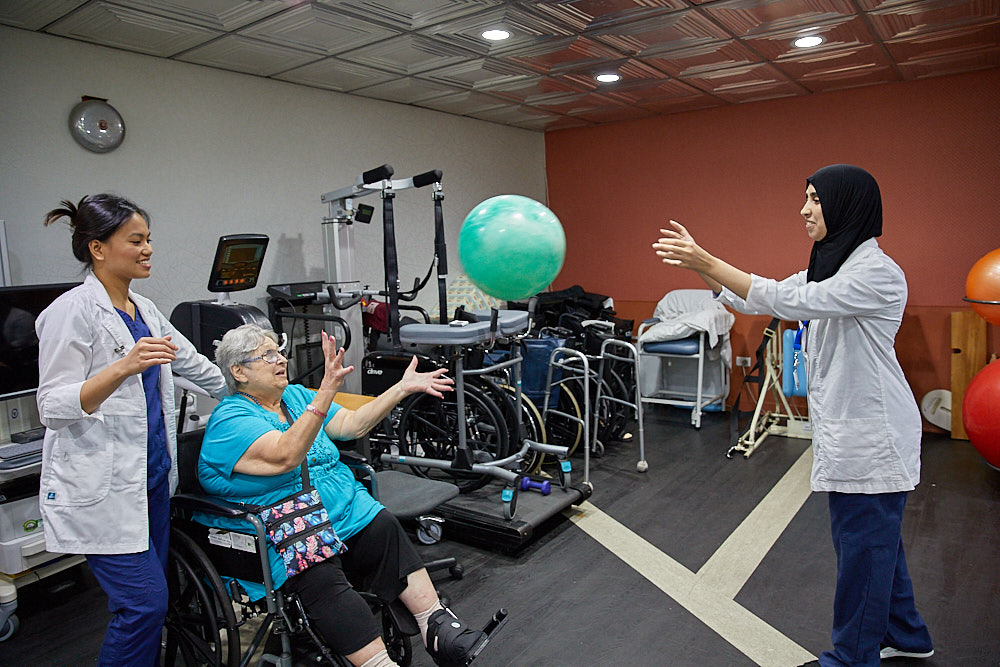How To Overcome Fatigue from Heart Failure?
Heart failure is a serious condition occurring when the heart can’t pump blood at its usual rate. Instead, it focuses on reaching the vital body parts while limiting flow to the limbs and other areas. Improper blood distribution causes shortness of breath, chest pain, swelling, nausea, and loss of appetite. One of the more common side effects is heart failure fatigue, causing weakness and movement difficulties.
To help combat weakness in the body, cardiac care and rehabilitation are recommended. The program includes physical therapy, nutrition counseling, heart health and risk factor education, and emotional support. Cardiac care is customizable to match every stage of heart disease to reduce weakness and other symptoms. For more information on how to manage fatigue, check out the following sections.

What Does Heart Failure Fatigue Feel Like
The heart’s purpose is to pump blood to every part of the body. When the heart fails, it can’t pump blood as well, sacrificing less essential areas to maintain vital organs. The reduced blood flow causes weakness, particularly in the arms and legs. The body feels tired more often and can’t move as well as usual.
Heart failure also causes tiredness and shortness of breath during and after activity. Even eating results in sleepiness, making it difficult to move about after meals.
Overcoming it
When dealing with heart failure fatigue, many people avoid physical activity to reduce exhaustion. Unfortunately, doing so isn’t helpful. In fact, exercise is one of the most recommended treatments for such symptoms.
Aerobic exercises work all the muscles in the body, including the heart. The more often you work out, the stronger those muscles become. The stronger the heart, the faster it sends oxygenated blood throughout the body.
It no longer needs to sacrifice areas to focus on essential organs. Instead, it sends blood to every area, generating energy and reducing weakness and fatigue.
Though you can work out on your own, your doctor may recommend physical therapy. The program is customizable to meet your fitness level and medical needs.
Stress management
Stress increases heart failure fatigue in a few ways. First, it releases cortisol and adrenaline, which raise the heart rate and blood pressure. High stress levels also increase anxiety and depression, altering an individual’s mental state. When suffering from such issues, people tend to reduce physical activity and other activities, increasing fatigue.
The best way to manage stress is to incorporate enjoyable activities into each day. These can be calming hobbies, like reading, painting, or gardening. Adding a physical aspect, like yoga or tai chi, is also beneficial. Meditation is another fantastic way to reduce stress and prevent fatigue.
Lifestyle changes
A few lifestyle changes are recommended for those trying to reduce fatigue from heart failure. A healthy diet is crucial, including heart-healthy foods like fruits, vegetables, whole grains, and lean proteins. These items contain nutrients the body uses for energy, reducing weakness. Limiting harmful items, like salt, sugar, caffeine, and processed foods also helps with fatigue.
Proper sleep habits are also necessary for preventing weak, tired limbs. Going to bed early in a quiet, dark room and getting eight hours of uninterrupted sleep is crucial. The better you sleep, the more energy you’ll have when you wake.
This article contains informational and educational materials and does not replace health or medical advice. For questions or concerns regarding your medical condition or health objectives, speak to a qualified physician or healthcare provider.






Leave A Comment